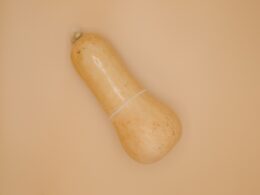As your best friend and mom have probably told you a million times, it’s important to pee after sex. It can help prevent a UTI and can even kill bacteria in the urethra.
Ejaculation is a natural process that involves the vas deferens, seminal vesicles, and prostate gland. It releases semen (also known as ejaculate, cum, or jizz) after sexual orgasm.
What is ejaculation?
Ejaculation is when a sticky liquid (called semen or cum) comes out of your penis. It’s usually part of an orgasm but can happen without one, too. It’s controlled by nerves that go from your reproductive system to parts of your spinal cord. They cause your prostate and the tube that carries sperm from it to get squeezed together by spasmodic muscle contractions. This causes a release of sperm and fluid from your penis into the urethra, which you then expel.
The fluid that comes out during ejaculation isn’t urine, though it may look like it at first. It’s mostly prostate enzymes with a little bit of urea and some creatinine, which are components of your urine. But it doesn’t smell like urine and doesn’t have that familiar, pee-like taste that some people describe. The exact feeling of ejaculation varies from person to person. It can feel like a warm tremor or a rising warmth between your thighs. It depends on your level of arousal and the position or technique you use during sexual activity.
It’s important to pee after sex to help mitigate the risk of a urinary tract infection. But that only works if you do it right away, to flush out any bacteria that could have been pushed up from the meatus through your urethra. It doesn’t stop STIs, but it does help.
How does ejaculation happen?
Ejaculation is a combination of seminal fluid, sperm, and other secretions that leaves the body through the penis (Alwaal, 2015). It happens when friction on the glans penis and other stimuli cause sexual arousal or orgasm. This causes a release of fluid from glands on the tip of the penis called Cowper’s glands. This fluid is also known as precum or pre-ejaculate. After the erection disappears, muscles in the penis and pelvis contract to push semen out of the penis through the urethra.
For men, peeing after sex can help prevent UTIs by flushing bacteria out of the urethra. It also keeps the urethra clean by removing any remaining semen. Women don’t have to pee after sex, but it can be helpful for women because it can help reduce the risk of UTIs. Peeing after sex also helps to clear bacteria out of the vagina, which can cause irritation.
However, women should keep in mind that peeing after sex won’t prevent them from getting pregnant if they have unprotected sex. To prevent pregnancy, a woman needs to use a barrier method such as a condom. Also, it’s important for both partners to use barrier methods during sex to protect against sexually transmitted infections.
How long after ejaculation can you pee?
We’ve all heard the age-old adage “You should pee after every sex to avoid a UTI.” But what exactly is the best time frame for peeing after sex? INSIDER spoke to a few gynecologists about this topic, and it turns out there is a little more wiggle room than you might think.
The thrusting motion of sex pushes bacteria from the labia (aka your vulva) up through your urethra, which leads into the bladder. This is why urinating right after sexual intercourse can help prevent a UTI, according to OB-GYN Robert Borrowdale. However, the bacteria doesn’t actually enter the walls of your bladder, he says. The best time to pee after sex is within 30 minutes of having sexual intercourse, he adds.
It’s important to note that while urinating after sex can help prevent UTIs, it doesn’t protect you against sexually transmitted infections (STIs). This is because sperm enter the body through the vaginal canal, not the urethral opening, which is different for women than men. Therefore, even if you pee after sex, it won’t prevent you from contracting an STI, unless you use a barrier method.
Similarly, if you have oral sex or cunnilingus, the bacteria from your partner’s mouth can enter your urethral opening through the vaginal canal. Therefore, you can still get a UTI if you’re not careful and don’t use a barrier method.
What if I can’t pee after ejaculation?
A lot of people have heard that it’s crucial to pee after sex because it prevents UTIs. However, there’s no real science behind this belief. We sat down with an expert to find out what is true and what isn’t when it comes to peeing after sex.
The Urinary Tract Infection (UTI) occurs when bacteria from the anal or vaginal area climbs up into the urethra and enters the bladder. It’s usually the result of unprotected sex. The reason why it’s important to pee after sex is because it flushes out any bacteria from the anal and vaginal areas. It also helps to keep the urethra clean.
It doesn’t stop STIs, however. Most STIs are transmitted when a healthy person’s body fluids mix with an infected one. This can occur during oral, anal, or vaginal sex. Thankfully, sperm and urine can’t mix together. The sperm that’s released during ejaculation is contained within the fluid called semen. It’s a little more complicated for females, since their urine and saliva are mixed during orgasm.
If you’re experiencing painful urination after sex, you should contact your doctor. The condition is known as dysuria, and it’s a symptom of a number of different medical conditions. It’s common in men and can be caused by an enlarged prostate gland, urinary tract infections, or other health issues.









